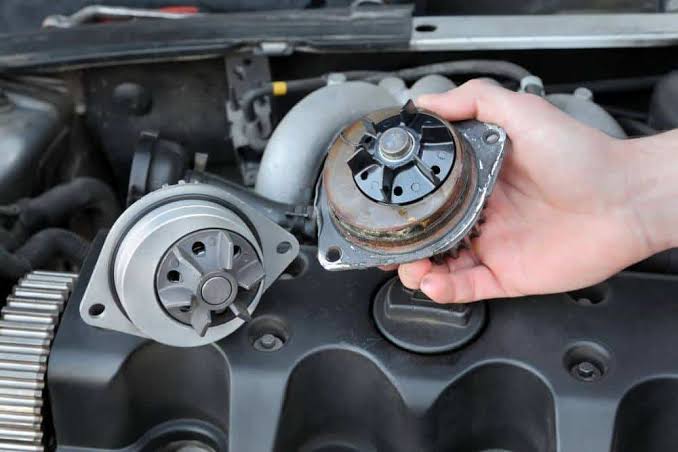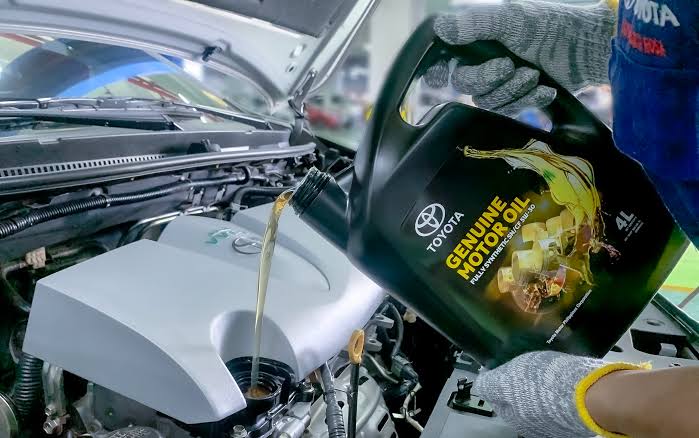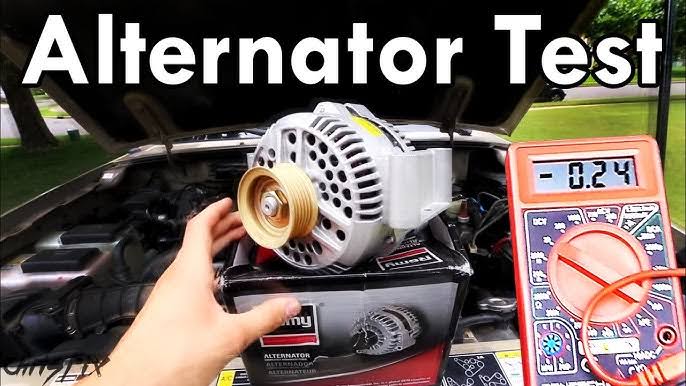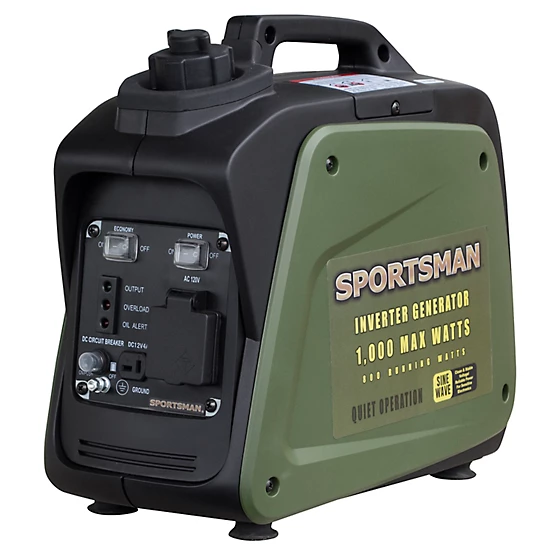Does a Bad Water Pump Cause Overheating?

The water pump is a vital component of a vehicle’s cooling system, ensuring that coolant circulates through the engine and radiator to maintain optimal temperature. If the water pump fails, it can lead to severe engine problems, including overheating. This article explores the connection between a bad water pump and engine overheating, along with symptoms, causes, and solutions.
What Is a Water Pump?
1. Role of the Water Pump
The water pump is responsible for pumping coolant through the engine block, hoses, and radiator. This process keeps the engine from overheating by transferring excess heat away.
2. Importance in the Cooling System
A functional water pump ensures efficient cooling, protecting your engine from damage caused by high temperatures. Without it, the engine cannot maintain a stable operating temperature.
Does a Bad Water Pump Cause Overheating?
1. Yes, It Can Lead to Overheating
When the water pump fails, the flow of coolant is disrupted, preventing heat from being effectively removed from the engine. This results in the engine overheating, which can cause serious damage if not addressed promptly.
2. Why Overheating Happens
- Reduced Coolant Circulation: A faulty water pump cannot move enough coolant through the system.
- Inefficient Cooling: Without proper coolant flow, the radiator cannot dissipate heat effectively.
- Increased Engine Temperature: The buildup of heat in the engine leads to overheating.
Symptoms of a Bad Water Pump
1. Engine Overheating
One of the most obvious signs is the engine temperature gauge rising into the red zone or a warning light on the dashboard.
2. Coolant Leaks
A failing water pump often leaks coolant, leaving puddles under the vehicle.
3. Unusual Noises
A bad water pump can produce whining, grinding, or squealing noises due to a damaged bearing or pulley.
Also Check — Who Owns Lee Slenbacker Joppa Transmission Repair?
4. Steam from the Radiator
Overheating may cause coolant to boil, resulting in steam escaping from the radiator or coolant reservoir.
5. Low Coolant Levels
Frequent drops in coolant levels could indicate a leak caused by a faulty water pump.
Causes of a Bad Water Pump
1. Wear and Tear
Over time, components like bearings, seals, and impellers wear out, reducing the water pump’s efficiency.
2. Corrosion
Corrosion inside the pump or cooling system can damage the impeller or housing.
3. Coolant Contamination
Using the wrong type of coolant or failing to flush the system regularly can lead to blockages and damage.
4. Loose or Damaged Belt
A worn or improperly tensioned serpentine belt may fail to drive the water pump effectively.
Diagnosing a Bad Water Pump
1. Visual Inspection
Check for visible signs of leaks, corrosion, or damage to the water pump and surrounding components.
2. Listen for Noises
Unusual sounds like grinding or whining can indicate a failing water pump.
3. Check Coolant Flow
A mechanic may inspect coolant circulation using specialized tools to confirm water pump failure.
4. Inspect Temperature Readings
Rising engine temperature or inconsistent readings on the temperature gauge may point to a faulty pump.
Fixing a Bad Water Pump
1. Replace the Water Pump
The most effective solution for a faulty water pump is a complete replacement. This ensures proper coolant flow and prevents further issues.
2. Flush the Cooling System
After replacing the water pump, flush the cooling system to remove contaminants and ensure optimal performance.
3. Inspect and Replace Belts
If the serpentine belt driving the pump is worn or loose, replace or adjust it.
4. Use Proper Coolant
Refill the system with the manufacturer-recommended coolant to avoid future problems.
Preventing Water Pump Failure
1. Regular Maintenance
Inspect the water pump, belts, and coolant levels during routine maintenance checks.
2. Replace Coolant as Needed
Follow the vehicle manufacturer’s recommendations for coolant replacement intervals.
3. Address Leaks Promptly
Fix coolant leaks as soon as they occur to prevent water pump damage.
4. Monitor Engine Temperature
Keep an eye on the temperature gauge and investigate any abnormal readings immediately.
FAQs
1. What Happens If I Ignore a Bad Water Pump?
Ignoring a bad water pump can lead to severe overheating, resulting in engine damage, such as a blown head gasket or warped cylinder heads.
2. How Long Does a Water Pump Last?
Most water pumps last between 60,000 and 100,000 miles, depending on the make and model of your vehicle.
3. Can I Drive with a Failing Water Pump?
Driving with a failing water pump is not recommended, as it can lead to complete pump failure and engine overheating.
4. How Much Does It Cost to Replace a Water Pump?
Water pump replacement costs typically range from $300 to $750, depending on the vehicle and labor rates.
Conclusion
A bad water pump is a significant cause of engine overheating. Recognizing the symptoms and addressing the issue promptly can save you from costly repairs and potential engine damage. Regular maintenance and timely water pump replacement are essential to keep your vehicle’s cooling system functioning efficiently. If you suspect a problem with your water pump, consult a mechanic to ensure your engine stays cool and reliable.






3 Comments